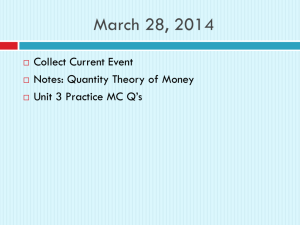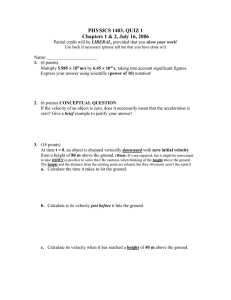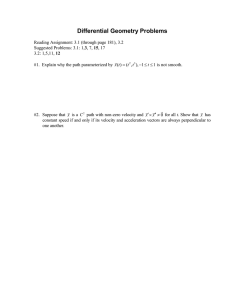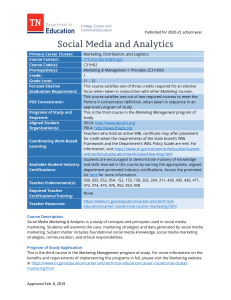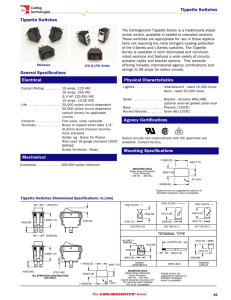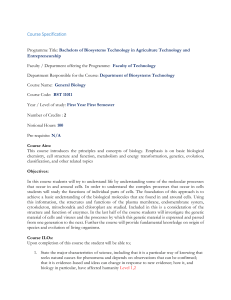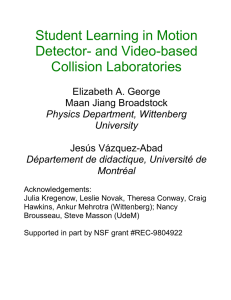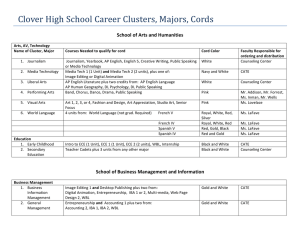Solutions for Exam #1 Fall 2001 Position
advertisement
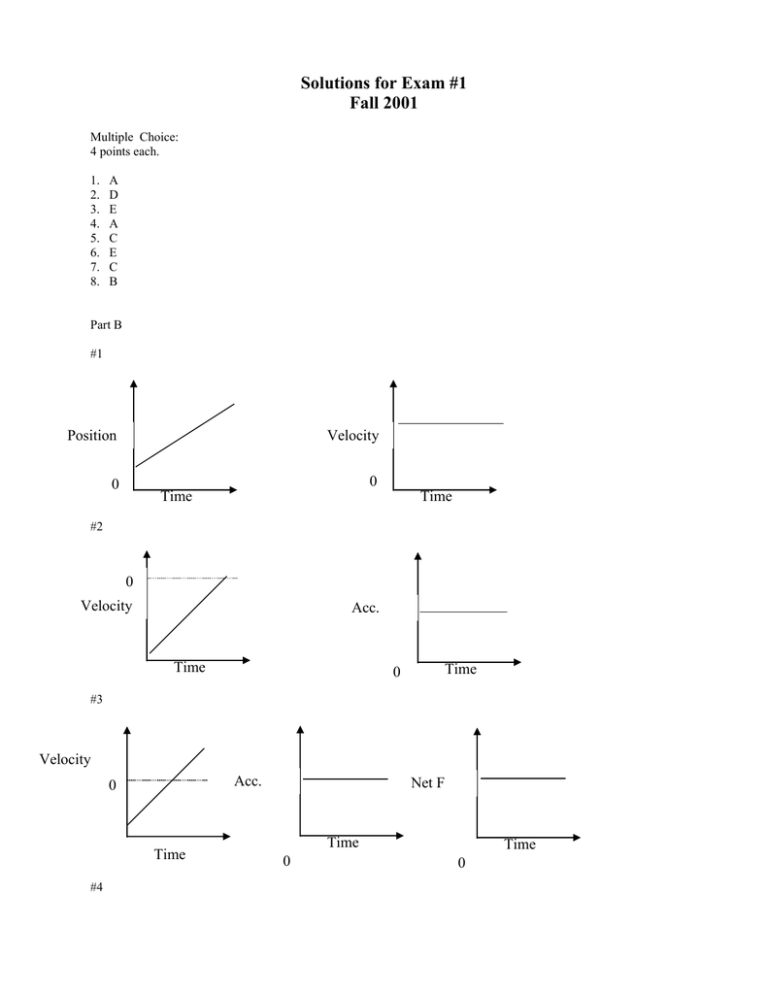
Solutions for Exam #1 Fall 2001 Multiple Choice: 4 points each. 1. 2. 3. 4. 5. 6. 7. 8. A D E A C E C B Part B #1 Position Velocity 0 0 Time Time #2 0 Velocity Acc. Time Time 0 #3 Velocity Acc. 0 Time #4 Net F Time 0 Time 0 Because the force from the hang mass (the tension) is much larger than the frictional force. It is basically the ONLY force in the horizontal direction. Weight and normal force cancel out in the y direction and therefore the applied force is the net force. Part C #1 A) The weight of the block and the normal force from the scale B) The weight of the scale, the (normal) force from the block and the normal force from the table C) D) NS on Bl NT on S FBl on S (NBl on S) WBl WS E) The force from the scale on the block and force from the block on the scale are (the only) Newton’s third law force pair. #2 A) N-Wcos37=0 or N-Wsin 53=0 and T-Wsin 37=ma or T-Wcos53=ma B) N-Wcos37+Psin18=0 or N-Wsin53+Psin18=0 And Pcos18-T-Wsin37=ma or Pcos18-T-Wcos53=ma T #3 girl T NS on B Wg WBl Scale Assuming the girl accelerates downward… and using the standard choice of coordinate system, this gives: T-Wg = mg(-a) and T+N-Wbl = mbl(a) If the scale is to read zero, the normal force must be zero. So we have T-Wg = mg(-a) and T-Wbl = mbl(a) If the block is to remain in contact with the scale, a for the block is zero. So we have T-Wg = mg(-a) and T-Wbl = 0 or T=Wbl Combining these two gives: Wbl-Wg = mg(-a) or Mbl(g) – mg (g) = mg (-a) or g ( Mbl- mg)/mg =-a So g (75-50)/(50) = -a -a = 0.5 g so a = -0.5 g The minus sign means that I chose the wrong direction for the acceleration in my initial assumption, so a is 0.5 g UPWARD.

